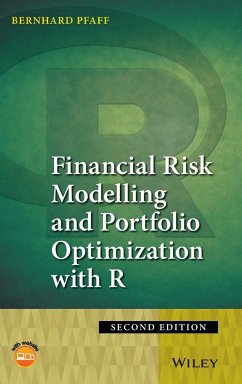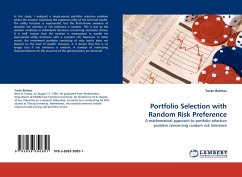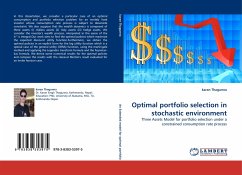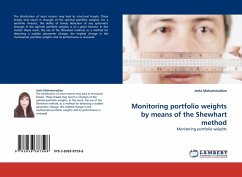
A behavioural approach to financial portfolio selection problem
An empirical study using heuristics
Versandkostenfrei!
Versandfertig in 1-2 Wochen
22,99 €
inkl. MwSt.

PAYBACK Punkte
11 °P sammeln!
The behaviourally based portfolio selection problem with investor's loss aversion and risk aversion biases in portfolio choice under uncertainty are studied in this research. The main results of this work are developed heuristic approaches for the prospect theory and cumulative prospect theory models proposed by Kahneman and Tversky in 1979 and 1992 as well as an empirical comparative analysis of these models and the traditional mean variance and index tracking models. The crucial assumption is that behavioural features of the (cumulative) prospect theory model provide better downside protecti...
The behaviourally based portfolio selection problem with investor's loss aversion and risk aversion biases in portfolio choice under uncertainty are studied in this research. The main results of this work are developed heuristic approaches for the prospect theory and cumulative prospect theory models proposed by Kahneman and Tversky in 1979 and 1992 as well as an empirical comparative analysis of these models and the traditional mean variance and index tracking models. The crucial assumption is that behavioural features of the (cumulative) prospect theory model provide better downside protection than traditional approaches to the portfolio selection problem. In this research the large scale computational results for the (cumulative) prospect theory model have been obtained. In order to investigate empirically the performance of the behaviourally based models, a differential evolution algorithm and a genetic algorithm which are capable to deal with large universe of assets have been developed. The prospect theory model with the reference point being the index is compared to the index tracking model. The portfolio diversification benefit has been found.












